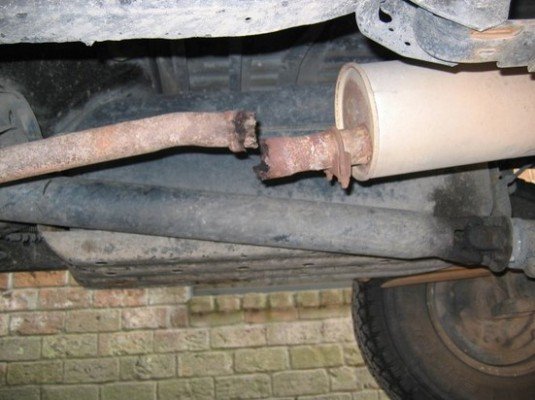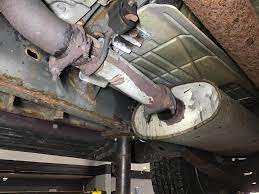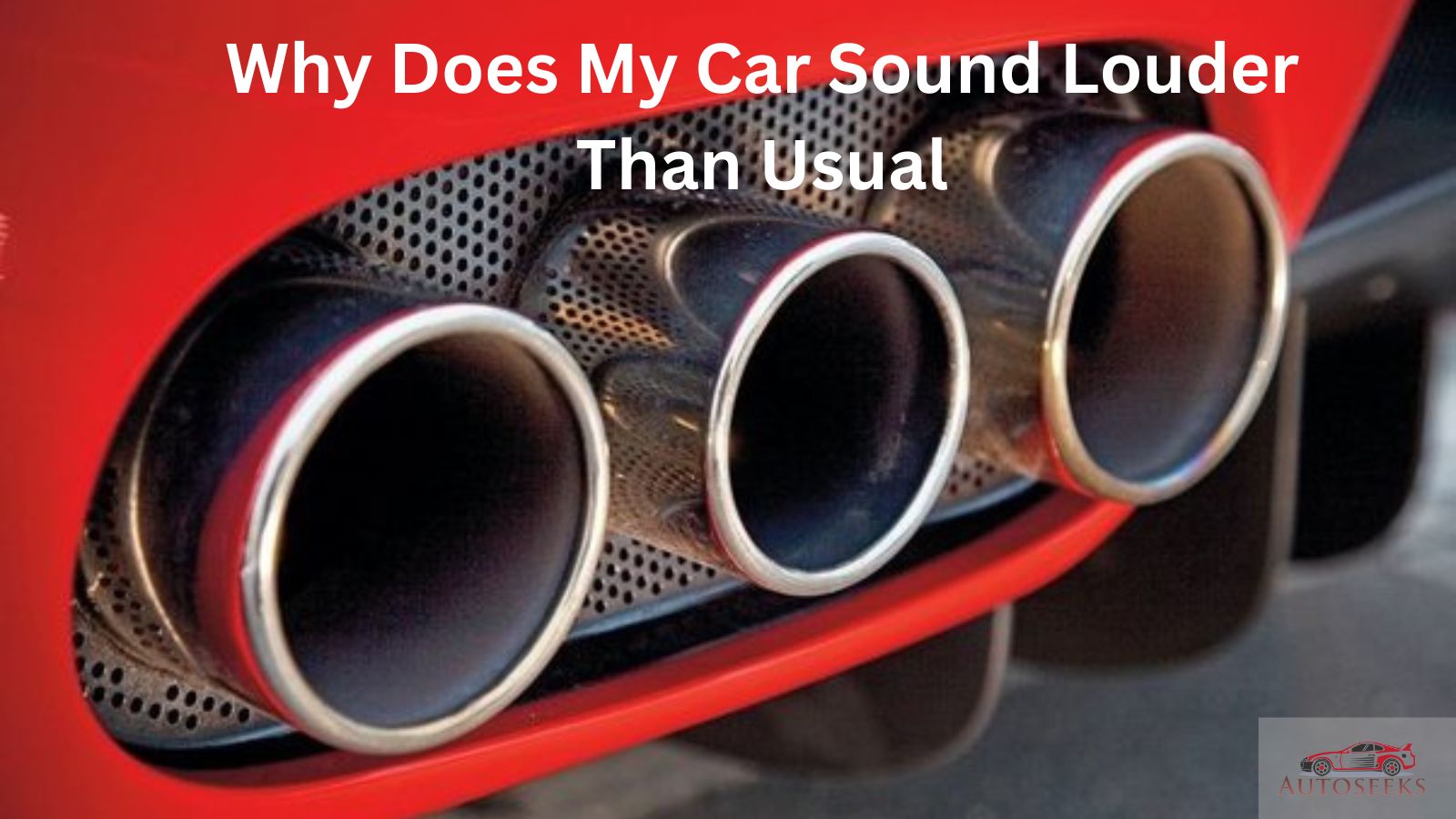Vehicles frequently emit noise. However, car owners are aware of what is and is not normal. Sometimes it’s a gut feeling or an apparent rise in decibel levels. In this way, your vehicle is stronger than expected and you tracked down the wellspring of the issue, however you don’t have the foggiest idea why my car sounds louder than usual. We looked into the answer for you.
An issue with your exhaust system is usually the cause of a loud engine. A malfunctioning exhaust system poses the same threat of toxic fumes entering the cabin as a damaged muffler.
Commotions are the most well-known, recognizable sign of a major issue with your vehicle. Some problems can be fixed quickly with cleaning and DIY, while others require professional assistance. When your car is louder than usual, the causes and solutions are as follows.
Table of Contents
Top Reasons Why Your Car Sound Louder than Usual
There are several reasons why your car might sound louder than usual. Here are some of the top reasons:
1. Damaged and Leaking Exhaust System
When the check engine light comes on and you hear noises coming from the back end, particularly a loud sputter or rumble, there is probably damage to your exhaust system. Deal with the noise right away because it’s most noticeable when you’re accelerating.

Because it is harmful to your health, leaking exhaust should not be taken lightly. It is incredibly hot, fit for softening plastic, and there’s a high chance of carbon monoxide harm if it saturates the vehicle inside
Likewise, it can additionally harm your vehicle by making it lose power, mileage, and motor control.
2. Valvetrain-Related Issues
When you start your car, you might hear more engine noises if you live in a cold area or when the temperature is dropping.
This is because the oil is more viscous, making it difficult for the hydraulic lifters to raise and lower the valves. This noise is normal, and as the oil warms, it will eventually go away.
Changing the filter is another way to reduce this issue. Buy directly from the manufacturer or from stores that are accredited, and make sure you are using the appropriate filter to ensure compatibility.
3. Running Low on Engine Oil
Insufficient engine oil is yet another reason why your vehicle may be making more noise than usual. You’ll hear rubbing and grinding sounds if this is a problem.
The engine oil level monitor’s sensors should be checked for issues with new vehicle models. When it comes to older automobiles, you will need to manually check them by dipping a measuring stick to make sure they are at the appropriate level.
The engine could suffer significant damage if the oil level is too low. Add some oil, and if you’re worried there might be a hole, get your vehicle to your repairman for an exam.
As required, add oil to the engine. On the other hand, your engine may leak if you notice that you frequently run low and need to top off. Make your way to the auto repair shop to get this fixed. Verify the engine oil’s compatibility with your engine.
4. Failing Muffler
Mufflers are continually subjected to heat, pressure, road salt, grime, and the elements. A muffler will rust over time, resulting in holes and cracks. It will eventually begin to fail. A failing muffler is frequently to blame for a vehicle’s louder-than-usual operation. A significant decrease in gas mileage and an increase in exhaust fumes are two additional symptoms.

A broken muffler should be fixed or replaced right away because a bad exhaust system can cause more damage to the engine or catalytic converter.
How Can You Fix When Your Car Sound Louder Than Usual
The approach to fixing a car that sounds louder than usual depends on the underlying cause of the issue. Here are some steps you can take to fix your car’s loud sound:
Automotive Sound-Deadening Insulation
The amount of specialized sound-deadening insulation that is installed in a luxury car that costs a lot more than a regular economy car is one of the most significant distinctions between the two.
But you don’t have to live with the noise if you drive an economy vehicle: To compete with those high-end automobiles, the aftermarket industry has developed dampening materials that self-adhere.
Superior sound-reducing materials are produced and supplied specifically for automotive applications by Dynamat and B-Quiet. The wind outside as well as the engine and exhaust systems’ sound waves are absorbed by these products.
Vehicle-specific custom kits are available from both businesses. This indicates that each component has been precisely sized to fit your automobile.
Check That the System on the Dashboard is in the Proper Place
Going directly to the source of the noise is the most effective method for reducing it in your car’s cabin. The engine, suspension, tires, and exhaust system are all common sources of automobile noise.
When starting your car or driving it, if you hear a grinding, clunking, scraping, squealing, or rattling sound, something is probably not working properly. Bring your vehicle to the mechanic for an evaluation. To avoid these loud problems, make sure to change the oil and other fluids often, check the tire pressure, and do regular maintenance.
Check that Sound-Reducing Car Parts Are in Place
A certain amount of engine and wind noise does make its way into a vehicle’s interior, even when it is operating at its peak efficiency. The majority of automobiles have sound-canceling features built in. Verify that they are working as intended.
To reduce engine heat and noise, automobile manufacturers install a flame-resistant pad on the underside of the hood. This pad also reduces engine noise well. Several distinct layers of material are frequently used to construct these thick pads.
Conclusion
- Keeping Your Gear Organized and Mobile - May 6, 2024
- Understanding Strut Tower Braces for Your Car - May 3, 2024
- Unlocking The Secrets of Your Car’s Identity with a VIN Decoder - April 25, 2024


